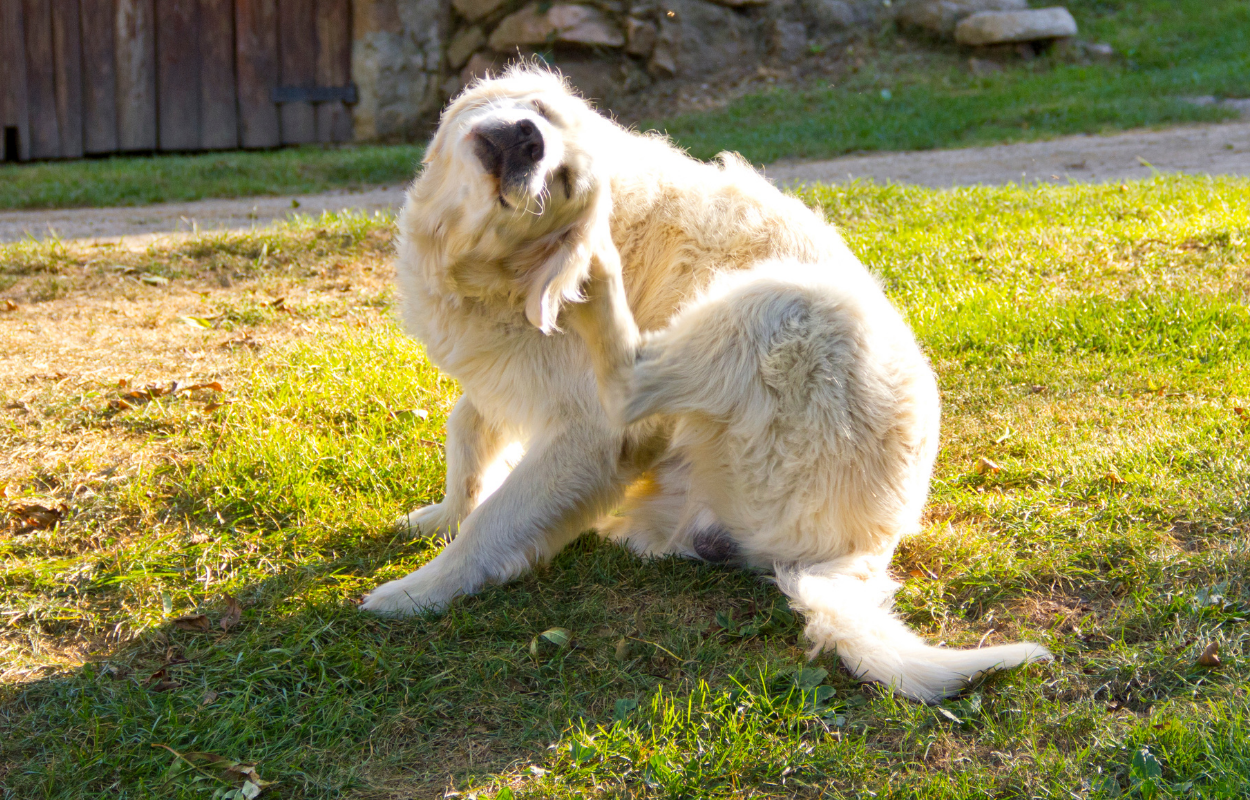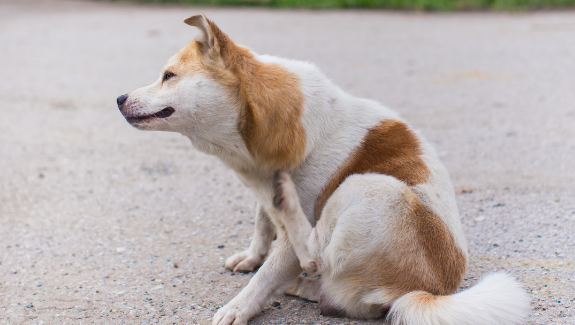
Why is My Dog Itching? Causes and Treatment
April 15, 2022Does your dog scratch and itch all the time? Are you the one getting uncomfortable every time you look at your fur baby scratching all over his body? Various factors can cause itching in your dog, but the sooner you find out what causes the itching, the better. When dogs scratch more frequently, it might be a sign of a medical condition that can become worse over time.
What causes dog itchy skin?
Fleas and Ticks

In case your dog is itching, check first for fleas and ticks. Dogs are the usual hosts for these blood-dependent pests, and they can latch onto just about anything. You may not notice ticks for some time until they become fully engorged and large enough that they can be spotted and removed. It's important to keep in mind that ticks can and do carry a variety of dangerous diseases, so watch out for them during tick season and when your dog enters an area with a risk of tick infestation.
Fleas can make your dog uncomfortable but not dangerous. Veterinary care is sometimes required to treat these kinds of infestations, which can cause severe itching and skin reactions. Some dogs can suffer from very painful flea bite reactions that cause hot spots, hair loss, swelling, and even infection when they get bitten by fleas. You can check for fleas by brushing the coat of your dog with a flea comb.
Food

You may need to adjust your dog's diet if he is itching. Dogs can be allergic to common ingredients in dog food, such as beef, chicken, and dairy. Itchy skin is often a sign of a dog food allergy, especially around the feet, face, armpits, and belly. Consult your veterinarian if you suspect your pet has a food allergy.
It may be possible to alleviate skin problems by changing your dog's diet and by adding certain supplements. Supplements such as salmon oil can also relieve skin itching and scratching. Research says fish oil for dogs consists of essential omega 3 fatty acids that will help support healthy skin and coats.
Environmental Allergies

Your dog may have environmental allergies to things like pollen or dander if he's itching but doesn't have fleas or food allergies. There are many environmental triggers that can cause allergic reactions, including pollen, mold spores, and dust mites. During certain weather conditions, such as in the spring and fall, environmental allergens can cause itching. A dog that is scratching, rubbing, and licking or shows other symptoms such as redness or hair loss may be suffering from an allergy.
Skin Infections

Itching can be caused by yeast or bacterial infections, which are not technically allergies. Skin that is infected is usually red, greasy, and smells unpleasant. In dogs, yeast usually affects folded areas like the ears, neck, under the tail, and around the toes. Infections caused by bacteria can occur anywhere, as a result of irritated or damaged skin.
You can help relieve your dog's itchy skin by following these treatments:

Another cause of itchy skin with your dog is harsh chemicals. Some dogs are allergic to certain chemicals and using a shampoo that does not contain phytates, paraben or sulfates can help relieve itching and scratching.
It has been shown that Omega-3 supplements may moisturize dry skin and fight red, itchy, or dry skin. Salmon oil for dogs has plenty of omega fatty acids that aid in maintaining healthy skin and coats because they keep cell membranes moist and resistant to damage.
The success of using antihistamines in treating itchy skin varies per dog. Some allergic dogs respond well to antihistamines for controlling symptoms of an allergic skin disease while others don't respond well to them for the simple reason that they don't address the underlying problem.
The use of steroids prescribed by a veterinarian may reduce allergic dog itch, but they might also have unpleasant side effects. When dogs are on prescription steroids, they tend to urinate more, become thirstier, and gain weight. Additionally, they may exhibit more aggressive behavior.
Your dog would feel uncomfortable when they are itchy. Excessive scratching may lead to injuries. There can be a lot of reasons why your dog is feeling itch and when they do, it is important to consult a veterinarian to have the right treatment and cure for your dog. When treatment is done, in no time, your dog will be feeling much better and happy.
